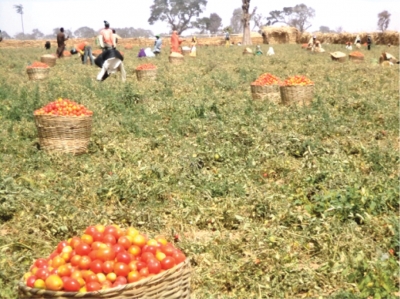News And PoliticsHealth And LifestyleSports And FitnessAgricultureOthersArts And EducationBusiness And MoneyCommunications And EntertainmentRelationship And MarriageStories And PoemsMotivationalsScience And TechnologyIT And Computer ScienceVehicles And MobilityPersonal Care And BeautyFamily And HolidaysFood And Kitchen
profile/6043MEEEE.jpg
Mafroosh12

Transforming Nigerias Agricultural Sector: The Way Forward
~1.6 mins read
Nigeria has a rapidly growing population of more than 200 million people, growing at about three percent a year. Despite the demographic boom, roughly half of Nigerians are living in extreme poverty. What is worse is that hunger and malnutrition have been on the rise in the country since the collapse of oil prices in 2014.
By 2019, the Global Hunger Index shows Nigeria ranking 93 out of 117 countries, with an unemployment rate of 23 percent. The situation is worsened by the COVID-19 pandemic which has caused huge shock to Nigeria’s economy and has led to rising joblessness and food insecurity in the country.
Nigeria’s agriculture sector has strong potential to provide adequate food for an increasing population, by supplying raw materials to a growing industrial sector, constituting the major source of employment in the country and being a major source of foreign exchange earnings.
However, the sector has not been able to live up to expectations due to a myriad of challenges such as inadequate budgetary allocation, low productivity, poorly developed value chain, farmers and herders crisis, general insecurity, climate-related disasters, and bad governance.
In 2014, Nigeria and other African countries came together to discuss many of the problems facing Africa’s food systems. In doing so, they agreed to a set of policy commitments to accelerate inclusive agricultural transformation on the continent, called the Malabo Declaration. Six years on, Nigeria is still not on track to achieving the Malabo goals. To address the gaps, ActionAid Nigeria (AAN), ONE Campaign, Federal Ministry of Finance, Budget and National Planning, Federal Ministry of Agriculture and Rural Development (FMARD) and the Department of Agriculture & Water Resources of the ECOWAS Commission organised a 2-day Stakeholders Consultative Meeting on the 2021 Agriculture Budget at Dover Hotel, Lagos State, 23rd – 24th September, 2020.
The objectives of the meeting were: to leverage understanding on Nigeria Agriculture Promotion Policy (APP) and its connection to the Comprehensive Africa Agriculture Development Programme (CAADP) targets; to strengthen citizens’ participation towards making 2021 agriculture budget responsive towards food security and wealth creation; and to support effective biennial reporting by Nigeria to the African Union Heads of States in line with the Malabo Declaration and Commitments of 2014.
profile/6043MEEEE.jpg
Mafroosh12

New Pineapple With Pink Interior Launched
~0.5 mins read
Del Monte Fresh Produce N.A., Inc. has announced the launch of its newest product, the exclusive and luxurious Pinkglow Pineapple.
The Pinkglow Pineapple is a novel pineapple with a pink interior, new and uniquely grown by Fresh Del Monte.
This pink pineapple, which hits the market on October 12th, 2020, can only be purchased online.
The Pineapples, which have been in development since 2005, are grown on a selected farm in Costa Rica, and take up to 24 months to produce.
The Pineapples are harvested by hand with their crowns replanted to increase the volume of crops and reduce waste.
The Pinkglo Pineapple can currently only be purchased online and will be sent direct-to-consumers nationwide in the United States for consumption.
Advertisement

Link socials
Matches
Loading...
